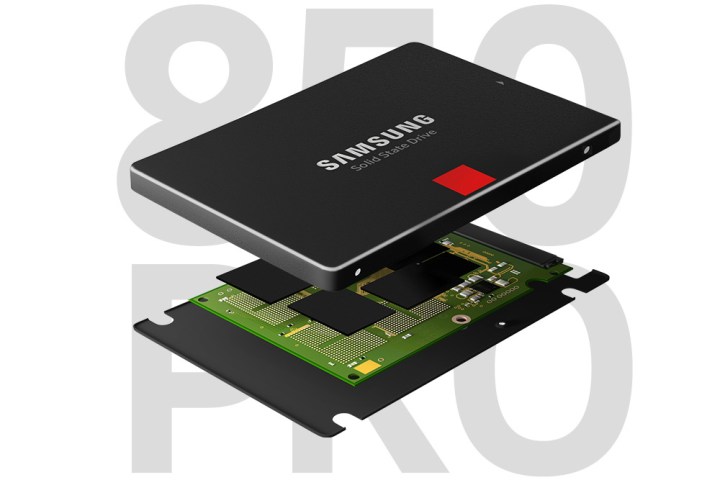
Announced by way of press materials that boasted of the numerous (35 in total) CES Innovation Awards the company has won this year, the 850 Pro will act as a professional counterpart to the previous release of the 850 EVO, which debuted back in July. While it will be broadly similar to the previous release, as Tom’s points out, it should have improved endurance and better long-term performance.
Of course the fact that it’s 4TB in size means whoever picks one up is unlikely to run out of space any time soon, either.
Related: WD Blue 1TB SSD review
Samsung also claims that the 850 Pro 4TB SSD is the world’s first 2-bit MLC, 4TB “consumer drive,” even though it is designed with enterprise and professional users in mind. It also has the benefits of slightly reducing power draw when compared to traditional hard drives, though that’s not a metric that will come into play for anyone using just one or two drives.
Other solid state drives said to be picking up Innovation Awards at the upcoming CES show, are Samsung’s 960 PRO SSD, as well as its PM971 512GB, BGA NVMe SSD. The former has a smaller capacity, at 2TB, but is the highest capacity M.2 form factor SSD that Samsung has ever released. It offers ultra high-end performance in an extremely compact package.
The PM971 might have a smaller capacity, but it takes up even less physical space. Smaller than a postage stamp, the PM971 offers performance in excess of three times the speed of your average 2.5-inch SATA III SSD, in a much reduced footprint.



